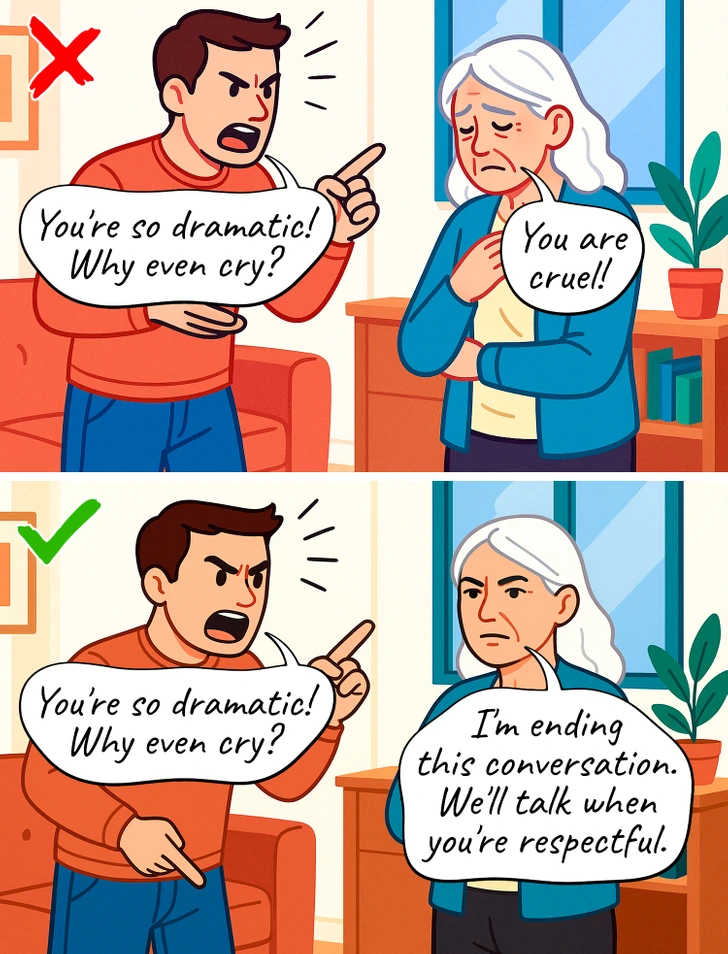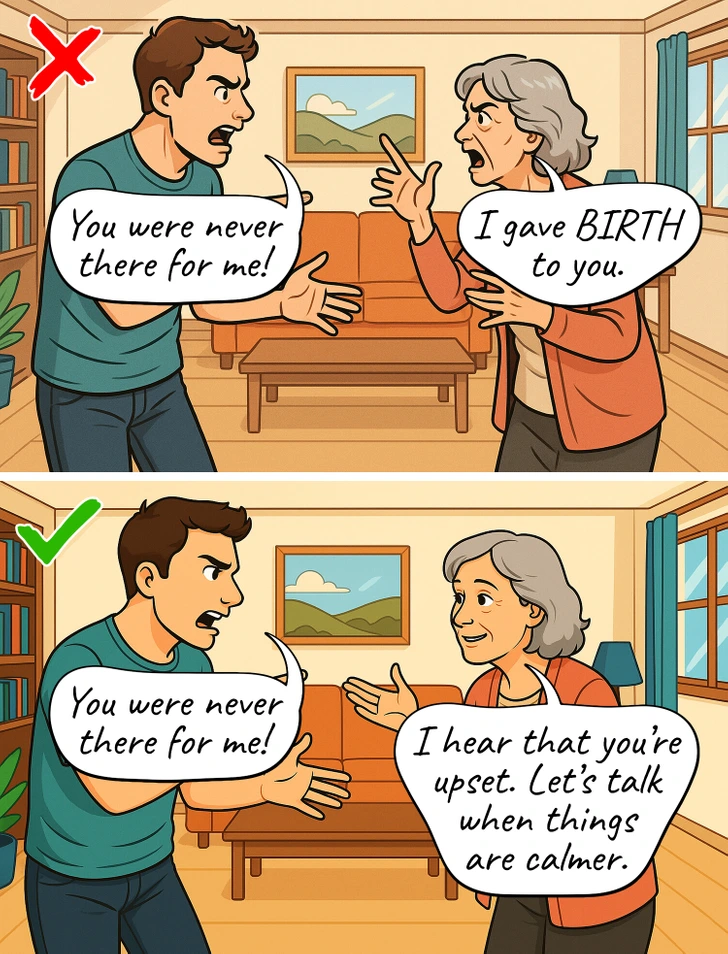Facing disrespect from an adult child is one of the most emotionally challenging experiences a parent can endure. When a once-loving relationship shifts into a source of pain and tension, it’s easy to feel lost and overwhelmed. However, no matter how complicated the situation becomes, you still have the right to emotional safety and respect. You deserve peace and compassion in your life. Understanding how to navigate these challenges with clarity and strength is essential. In this article, we’ll walk through practical and emotionally intelligent strategies to help you cope with disrespect from your adult child while maintaining your own mental well-being.

The first step toward healing is recognizing and naming the behavior for what it is. Disrespect can come in many forms—verbal attacks, dismissive comments, emotional manipulation, or even silent treatment. These patterns might begin subtly, but over time they can wear you down. Naming these behaviors clearly is empowering. It gives you a foundation from which to respond, rather than react. The moment you acknowledge that what you’re experiencing isn’t okay, you take the first step in reclaiming your emotional balance.
Once you’ve identified the harmful behavior, it’s time to set firm and healthy boundaries. Boundaries are not walls meant to shut others out—they’re guidelines that define how you expect to be treated. You might say something like, “If you raise your voice, I will step away from the conversation.” This approach isn’t about punishing your child but protecting your peace. Boundaries offer structure, especially in strained relationships, and send a clear message that mutual respect is non-negotiable.
Clear, calm communication is another key component in resolving tension. While emotions often run high in these situations, try to approach discussions with empathy. Instead of accusing or blaming, focus on how you feel. Use statements such as “I feel hurt when I’m spoken to that way” or “I want us to have a respectful conversation.” These kinds of statements promote connection rather than confrontation. If the conversation starts to heat up, taking a break can give both of you time to cool down and revisit the discussion with clearer minds.
It’s also important to reflect on your own role in the dynamic, without taking on all the blame. No parent is perfect. There may have been mistakes in the past, and acknowledging them shows maturity and a willingness to grow. However, emotional abuse or persistent disrespect is never justified. Your adult child is responsible for their behavior, just as you are for yours. Carrying guilt for things beyond your control only adds unnecessary weight to an already difficult situation.
Managing your expectations is another way to protect your emotional well-being. Adult children are individuals with their own beliefs, experiences, and challenges. Their choices and perspectives might not always align with yours. This disconnect can be painful, especially when values clash. But understanding that you can’t control how they think or act can help you reduce frustration. Keeping your expectations realistic allows you to approach interactions with more compassion and less disappointment.

That said, when you’ve made mistakes, owning up and offering a sincere apology can go a long way. If something you said or did hurt your child, a heartfelt apology can help repair the relationship. But remember—apologizing does not mean taking responsibility for their disrespect. It’s about showing humility and modeling healthy communication while still honoring your personal boundaries.
Equally important is remembering your worth. It’s easy to forget your value when hurtful words or actions come from someone you love deeply. But regardless of how your child behaves, you are deserving of kindness, respect, and dignity. Holding onto that truth will strengthen your resilience. It helps prevent their negativity from taking root in your heart or eroding your self-confidence.
In some cases, limiting communication is necessary. If constant tension is affecting your mental health, taking a step back can be a powerful act of self-care. This doesn’t mean you’re giving up on the relationship. Rather, it’s a way to create space for reflection and emotional healing on both sides. When you do resume contact, setting ground rules—like committing to respectful dialogue—can reset the tone of your interactions.
Avoiding power struggles is another important strategy. Trying to control or “win” an argument with your adult child often makes things worse. Disagreements can quickly escalate into battles where no one feels heard. Instead, focus on de-escalation. Let go of the need to prove your point. Your goal isn’t to dominate the conversation but to express your needs and protect your peace.

Amidst these challenges, don’t lose sight of self-care. When your emotional energy is drained, it’s hard to show up fully in any area of life. Prioritize activities that ground and refresh you. That could mean going for a walk, practicing mindfulness, enjoying a hobby, or connecting with a close friend. Tending to your mental and emotional needs gives you the strength to enforce boundaries and show up with clarity and calm in difficult moments.
Learning to say “no” is another vital part of protecting yourself. You are not obligated to meet every demand, especially if doing so comes at the expense of your well-being. Saying “no” with confidence and without guilt reinforces the idea that your needs matter, too. It teaches your adult child that while you love them, your love does not come with unconditional agreement or self-sacrifice.
Lastly, don’t hesitate to seek support. You are not alone in facing this kind of family challenge. There are support groups, therapists, and communities of other parents who have experienced similar situations. Sharing your story and hearing others’ can be healing and reassuring. Professional help can also provide tools and insight to navigate complex emotional terrain and find peace in the process.

In the end, you deserve to be treated with love, dignity, and respect. By standing firm in your boundaries, prioritizing your own mental health, and seeking supportive relationships, you give yourself the best chance at healing and possibly even restoring the relationship over time. Don’t give up on yourself—because your well-being matters.





